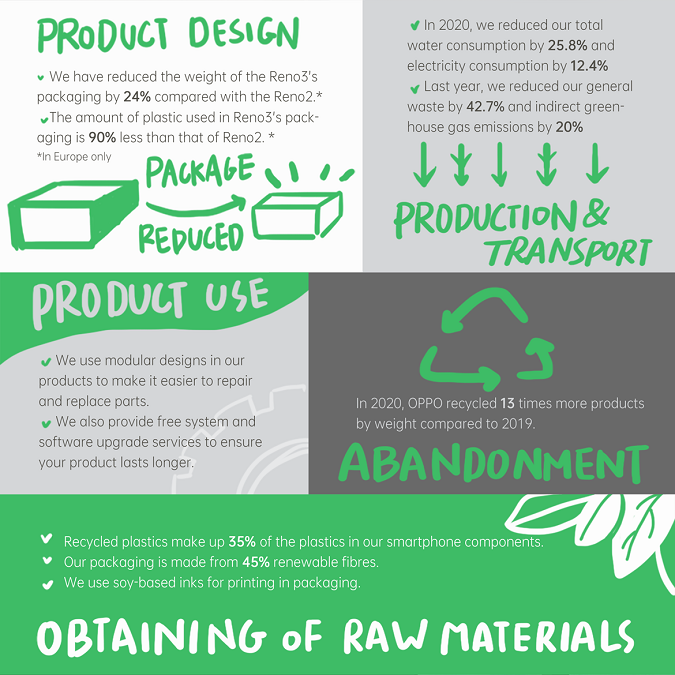“Since the company was founded in 2004, OPPO has been committed to improving the wellbeing our employees, customers and partners, as well as bettering our impact on the environment and society as a whole. Sustainability has been an integral part of our development strategy during this time, ensuring our ability to innovate and provide the best possible products and services for our users in what we call the Internet of Experience,” said Tony Chen, Founder and CEO of OPPO. “In reflection of our brand mission ‘Technology for Mankind, Kindness for the World’, and in staying true to our core value of Benfen, we will continue to invest in our sustainability. In doing so, we also look forward to working with partners across the industry to create a better future for people worldwide.” OPPO’s achievements in sustainability were verified by the leading testing service provider TÜV Rheinland, which gave recognition of OPPO‘s contributions based on international standards. This third-party verification proves OPPO’s own work towards creating a circular economy, which includes prioritizing the use of sustainable materials and minimizing its waste output. OPPO now adopts sustainable production processes, spanning from design, packaging, upgrading to material processing and more. As a result, TÜV Rheinland also certified the outcomes of OPPO’s sustainable resource management and reduced emissions. Seeing itself as a global citizen, further to its own social responsibility initiatives, OPPO is also working with suppliers to conduct sustainable management projects and collectively build a more sustainable ecosystem. For example, under the OPPO Social Responsibility Code of Conduct, suppliers are prohibited from engaging in unlawful or unethical practices, including monopolistic behavior, bribery or corruption. These efforts have led to a number of milestone achievements in 2020 as stated below in detail.
As part of its contribution to the circular economy, OPPO recycled 13 times more product by weight in 2020 compared with 2019. This was further supported by its efforts in using more renewable materials, with recycled plastic making up 35% of the plastic material contained in its smartphone components. At the same time, the company also achieved a 42.7% reduction in general waste and a 20% reduction in indirect greenhouse gas emissions in 2020. When it comes to people, as the lifeblood of its organization, OPPO has consistently put employee wellbeing at the forefront of its business operations. The company organized more than 670,000 hours of educational sessions and training programs in 2020 to assist exployees in planning and developing their careers. Likewise, for the millions of customers worldwide who use its products each day, OPPO takes their wellbeing just as seriously and has taken huge steps to better protect their data privacy. These include adding a number of innovative features to its ColorOS 11 operating system and as well as obtaining certifications for strict data privacy standards such as ISO (ISO/IEC 27001, 27018, 29151), TrustArc and ePrivacy. In the wake of the Covid-19 pandemic, OPPO joined hands with the global community and mobilized resources to provide aid and support around the world. In the Philippines, OPPO collaborated with NGO Save the Children to help students receive remote education through the donation of 100 OPPO A12e smartphones and 100 Rock Space Bluetooth headsets. In Thailand, OPPO donated over 20,000 N95 face masks to medical workers at Bangkok’s Siriraj Hospital and distributed medical kits to more than 13 hospitals across the country. OPPO is also supporting communities and culture around the world through initiatives such as its Campus Global Emerging Artists Project Renovators (Renovators) program. In 2020, OPPO launched the second Renovators program, providing a platform for 3,000 students from 150 top universities around the world to unleash their creative imagination. Making a significant and lasting impact on sustainability requires long-term thinking and commitment. OPPO will continue to further its own sustainability initiatives while collaborating with industry partners to create a better future for everyone.
